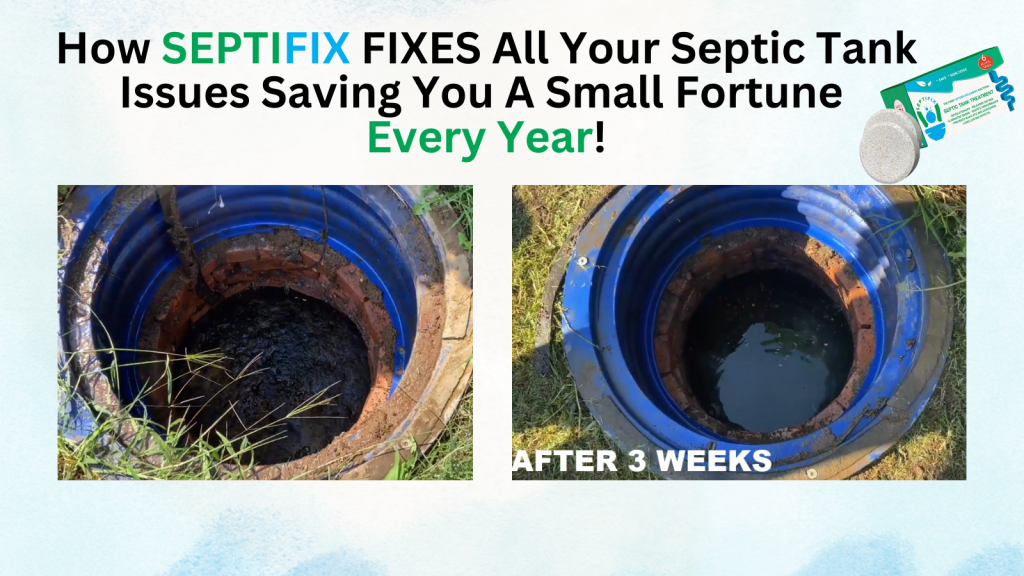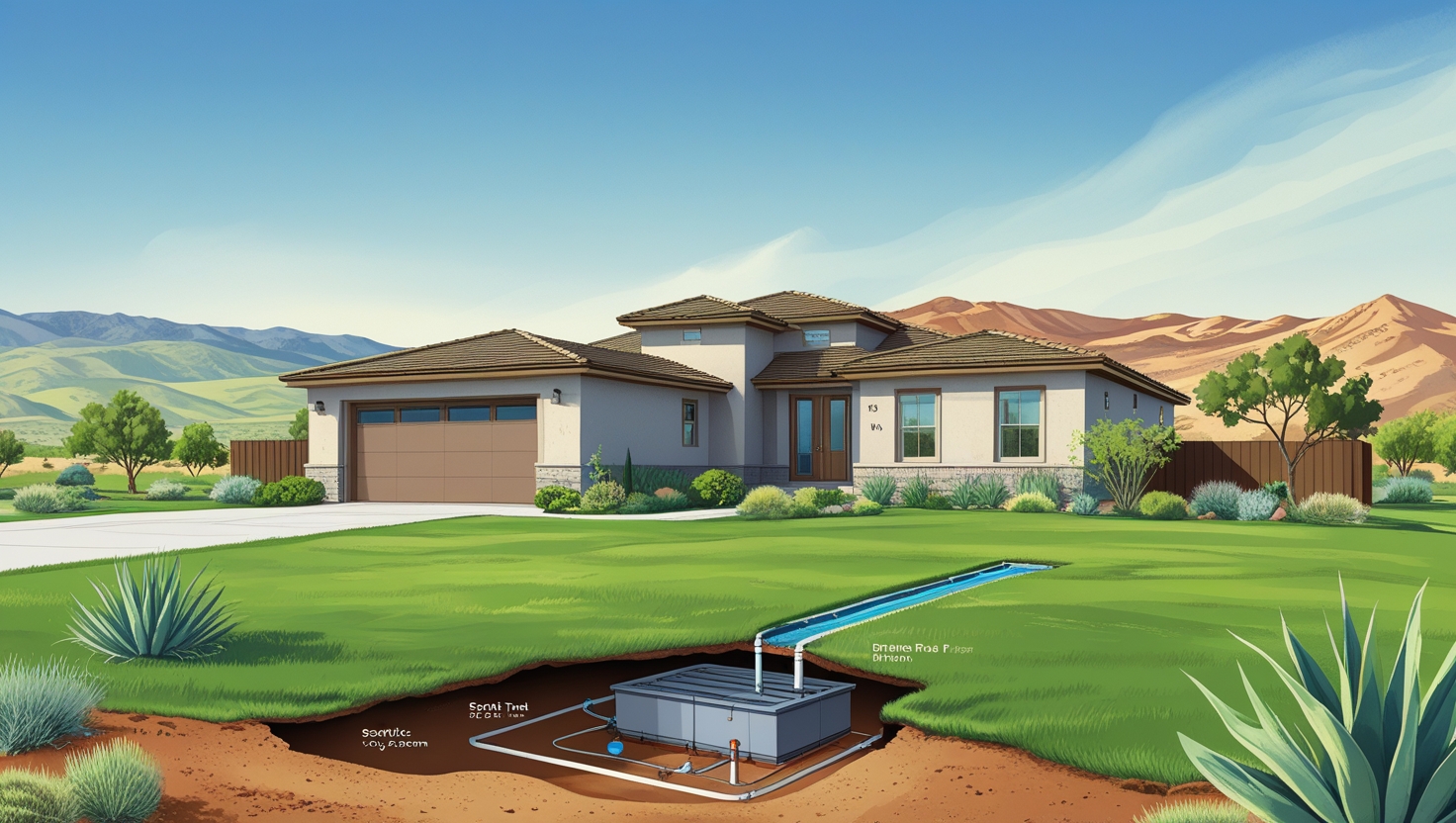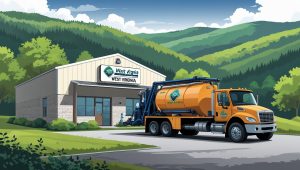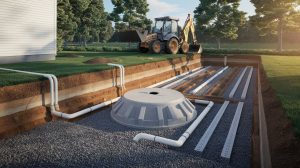New Nevada septic system regulations impact homeowners, contractors, and developers. Understanding these changes is crucial to avoid fines and ensure proper wastewater management. This guide explains the latest requirements, costs, and compliance steps.
Table of Content
- Overview of Nevada’s Septic System Laws
- Key Changes in the New Nevada Septic System Regulations
- How the New Laws Affect Homeowners and Contractors
- Costs and Financial Assistance
- Steps to Ensure Compliance
- Contact Information
- Septifix
- Septic Permit Links by State
Overview of Nevada’s Septic System Laws
Nevada regulates septic systems through the Nevada Division of Environmental Protection (NDEP) and local health departments. Previously, regulations focused on basic installation and maintenance guidelines. However, new rules aim to enhance water quality, prevent system failures, and ensure sustainable wastewater disposal.
Key Changes in the New Nevada Septic System Regulations
Recent updates introduce stricter design, permitting, inspection, and environmental requirements. Below are the key changes homeowners and professionals need to know.
1. Permitting Requirements
- Stricter Approval Process: Homeowners must secure permits before installing or modifying a septic system.
- Increased Fees: Application costs have risen to fund environmental protection efforts.
- Soil Testing Requirements: Systems must pass percolation tests to ensure proper wastewater absorption.
2. Design and Installation Standards
- Tank Size and Placement: New regulations specify larger tank capacities based on household size.
- Material Standards: Tanks must be made of durable, NDEP-approved materials.
- Drain Field Adjustments: New setbacks from water sources and property lines minimize contamination risks.
3. Inspection and Maintenance Rules
- More Frequent Inspections: Mandatory inspections ensure system integrity and prevent groundwater pollution.
- Record-Keeping Requirements: Homeowners must maintain maintenance records for regulatory review.
- Pumping Schedules: New guidelines recommend pumping every 3–5 years to extend system lifespan.
4. Environmental Protections
- Groundwater Protection: Stricter regulations control nitrogen discharge and septic system placement near water bodies.
- Alternative Treatment Systems: Some areas require advanced septic technologies to reduce contamination.
- Prohibited Waste Disposal: Flushing chemicals, grease, or non-biodegradable materials into septic systems is strictly regulated.
How the New Laws Affect Homeowners and Contractors
The new Nevada septic system regulations impose additional responsibilities on homeowners and industry professionals.
Homeowner Responsibilities
- Obtain permits before installing or repairing a system.
- Schedule regular inspections and system maintenance.
- Ensure septic tanks meet updated size and material standards.
- Keep detailed maintenance records for compliance.
Contractor Responsibilities
- Follow new design and installation guidelines.
- Conduct soil testing and percolation assessments.
- Obtain necessary approvals before starting projects.
- Educate homeowners about proper system maintenance.
Costs and Financial Assistance
Regulatory updates may increase septic system costs. Here’s what homeowners should expect:
- Permit Fees: New applications cost between $500–$1,500 depending on location and system type.
- Installation Costs: A standard system now ranges from $5,000–$12,000, with advanced systems exceeding $20,000.
- Inspection and Maintenance Fees: Professional inspections cost $200–$500, with pumping fees averaging $300–$600.
- Financial Assistance: Some Nevada counties offer grants or low-interest loans to help homeowners upgrade outdated systems.
Steps to Ensure Compliance
Avoid penalties and keep your system in top shape with these steps:
- Check Local Requirements: Contact your county health department for specific regulations.
- Hire Licensed Professionals: Work with certified septic installers and inspectors.
- Schedule Regular Inspections: Keep up with mandatory evaluations.
- Follow Proper Maintenance Practices: Pump regularly, avoid harsh chemicals, and conserve water.
- Keep Records: Maintain a file of permits, inspection reports, and maintenance logs.
Contact Information
For more information or professional assistance with septic system compliance in Nevada, contact:
Nevada Division of Environmental Protection (NDEP)
Website: www.ndep.nv.gov
Phone: (775) 687-4670
Email: info@ndep.nv.gov
Conclusion
Staying informed about new Nevada septic system regulations ensures compliance and protects your property. Homeowners must follow stricter permitting, design, and maintenance rules to avoid penalties and environmental harm. If you need assistance with septic system maintenance, consult a licensed professional to stay compliant and safeguard your system for years to come.
Local county health departments also provide guidance on septic system regulations and permits.
Septifix










